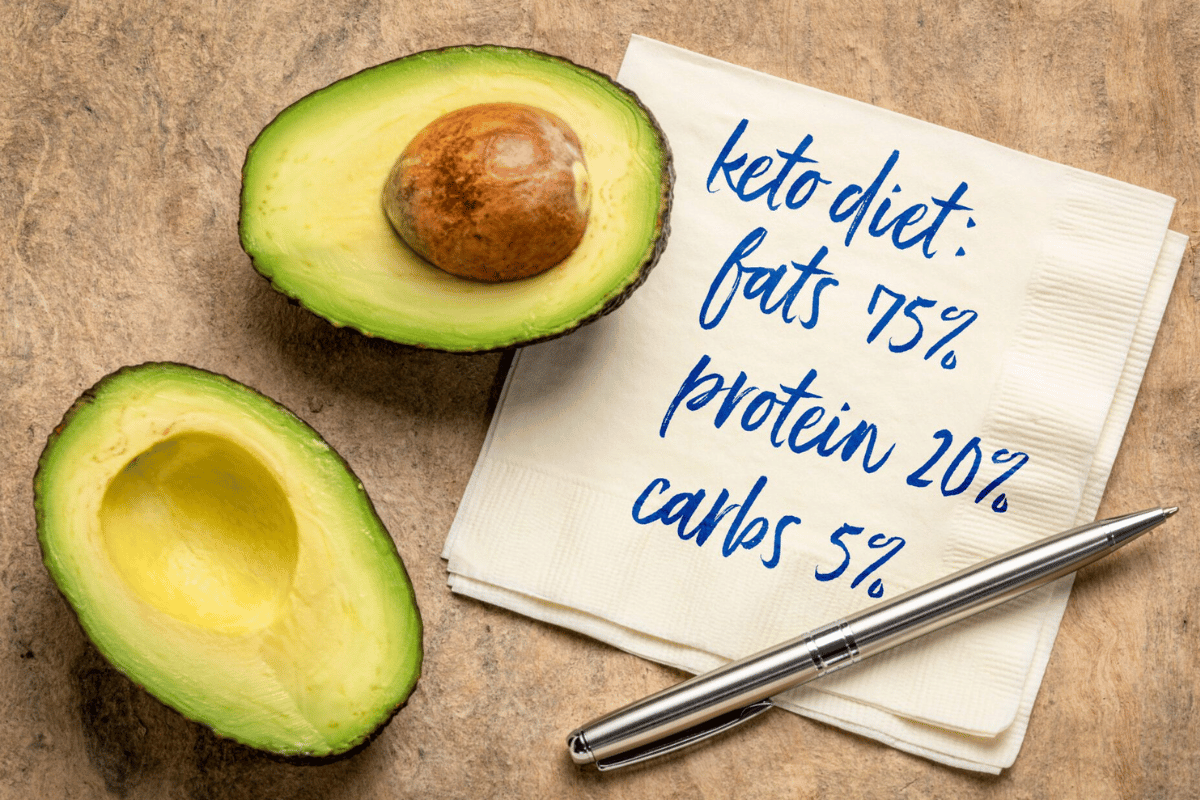In today’s fast-paced world, the pursuit of a healthier lifestyle has become increasingly significant. As we enter the year 2024, the desire to shed those extra pounds and achieve a slimmer physique remains a common aspiration for many. However, not everyone has the time or inclination for rigorous exercise routines. This brings us to the focal point of our discussion: “The No-Sweat Guide: 7 Proven Strategies on How to Lose Weight Without Exercise in 2024.”
In this article, we will delve into the world of weight loss without the need for strenuous exercise. We will explore the effectiveness of non-exercise strategies that are not only relevant but also achievable in the current year. While exercise undoubtedly plays a crucial role in maintaining good health, we will demonstrate that it is possible to achieve weight loss goals through alternative approaches.

how to lose weight without exercise
In an era where time is a precious commodity, understanding how to lose weight without exercise can be a game-changer. We will navigate through the various strategies that have proven successful for individuals seeking a healthier and leaner physique. From adopting healthier eating habits to embracing intermittent fasting, managing stress, and incorporating mindful eating practices, this guide will equip you with the knowledge you need to take control of your weight in 2024.
So, if the thought of sweating it out at the gym is not your cup of tea, fear not. This guide will empower you with practical insights and expert advice to embark on a journey towards sustainable weight loss. Let’s explore the world of non-exercise weight loss strategies and unlock the secret to achieving your fitness goals without breaking a sweat.
Healthy Eating Habits
Maintaining a healthy weight without the need for strenuous exercise begins with adopting healthy eating habits. In 2024, this approach remains as relevant as ever, offering a sustainable path to weight management.
Balanced and nutritious diet: The cornerstone of healthy eating for weight loss is a balanced and nutritious diet. This means consuming a variety of foods that provide essential nutrients, such as vitamins, minerals, and fiber. Incorporating a colorful array of fruits and vegetables into your meals not only adds flavor but also ensures a diverse range of nutrients.
Creating a calorie deficit: To lose weight without exercise, it’s crucial to create a calorie deficit, where you burn more calories than you consume. This can be achieved by being mindful of portion sizes and choosing foods that are lower in calories but high in nutritional value. Swap out processed snacks for whole foods and opt for lean protein sources to fuel your body efficiently.
Choosing healthier options: In 2024, there are countless healthy alternatives to traditional high-calorie foods. Opt for whole grains instead of refined grains, lean proteins over fatty cuts, and healthy fats like avocados and nuts in place of saturated fats. Emphasizing whole, unprocessed foods will not only support weight loss but also contribute to overall well-being.
By focusing on these healthy eating habits and making mindful choices in your daily diet, you can effectively create the calorie deficit needed to lose weight without the need for intensive exercise. These strategies not only align with current health trends but also promote a sustainable and long-term approach to achieving and maintaining a healthier weight.
Intermittent Fasting
In the pursuit of weight loss without the rigors of traditional exercise, intermittent fasting has emerged as a compelling strategy in 2024. This approach involves alternating periods of fasting with eating, and it has gained popularity for its effectiveness in aiding weight loss.
Intermittent fasting explained: At its core, intermittent fasting is about controlling the timing of your meals rather than the types of food you consume. It encourages the body to enter a fasting state, where it burns stored fat for energy. This results in a gradual reduction of body weight over time. Common fasting schedules include the 16/8 method (fasting for 16 hours and eating within an 8-hour window), the 5:2 diet (eating normally for 5 days and significantly reducing calorie intake for 2 days), and the eat-stop-eat method (24-hour fasts once or twice a week).

how to lose weight without exercise
Starting and maintaining an intermittent fasting routine: Implementing intermittent fasting may require an adjustment period. Begin with a schedule that suits your lifestyle and gradually extend fasting periods. Stay well-hydrated during fasting hours and break your fast with a balanced meal that includes protein, healthy fats, and carbohydrates. Consistency is key in maintaining an intermittent fasting routine, and it’s essential to listen to your body’s cues.
Consulting a healthcare professional: It’s important to note that intermittent fasting may not be suitable for everyone. If you have underlying health conditions or concerns, consulting a healthcare professional is advisable before embarking on an intermittent fasting journey. They can provide personalized guidance and ensure your safety throughout the process.
In 2024, intermittent fasting stands as a relevant and effective non-exercise approach to weight loss. By understanding its principles, benefits, and the importance of a gradual transition, you can harness the power of intermittent fasting to achieve your weight loss goals while maintaining a balanced and nourishing diet.
Stress Management and Sleep
In the quest for weight loss without the commitment of exercise, it’s essential to address two critical aspects of well-being: stress management and quality sleep. These elements play a significant role in your body’s ability to shed unwanted pounds in 2024.
The role of stress in weight gain: Research has shown that chronic stress can contribute to weight gain and hinder weight loss efforts. When you’re stressed, your body produces cortisol, a hormone that can lead to increased appetite and the storage of fat, particularly in the abdominal area.
Strategies for stress reduction: Effective stress management techniques can mitigate the impact of stress on your weight. Practices such as mindfulness meditation, deep breathing exercises, and yoga can help reduce stress levels. Engaging in hobbies, spending time in nature, and maintaining a strong social support system are also valuable for promoting emotional well-being.
The importance of quality sleep: Adequate, high-quality sleep is another critical factor in the weight loss equation. Poor sleep disrupts hormones that regulate appetite, making you more prone to cravings and overeating. Furthermore, insufficient sleep can lead to decreased energy levels, making it challenging to stay active during the day.
Prioritizing sleep: To promote quality sleep, establish a consistent sleep schedule and create a relaxing bedtime routine. Ensure your sleep environment is comfortable and free of distractions, such as electronic devices. Aim for 7-9 hours of restful sleep each night to support your weight loss goals.

how to lose weight without exercise
Incorporating stress management practices and prioritizing quality sleep are essential components of successful weight loss in 2024. By recognizing the impact of stress on weight gain and the importance of restorative sleep, you can create a holistic approach to achieving and maintaining a healthier weight without the need for intensive exercise.
Mindful Eating and Mindset
When it comes to achieving weight loss without the rigors of exercise, the power of mindful eating and a positive mindset cannot be overstated. These aspects go hand in hand in helping you reach your weight loss goals in 2024.
Exploring mindful eating: Mindful eating involves paying close attention to your eating habits and the sensory experience of each meal. It’s about being fully present during your meals, savoring every bite, and recognizing hunger and fullness cues. This approach can promote healthier eating habits and prevent overindulgence.
Tips for mindful eating: To practice mindful eating, start by eliminating distractions during meals, such as watching TV or working on the computer. Chew your food slowly, savoring each bite, and listen to your body’s hunger and fullness signals. Be aware of emotional eating triggers and find alternative ways to cope with stress or boredom.
Developing a positive mindset: A positive mindset is essential for long-term weight loss success. Focus on self-compassion rather than self-criticism. Set realistic goals and celebrate small victories along the way. Surround yourself with a supportive social network and seek professional guidance if needed.
By incorporating mindful eating practices and cultivating a positive mindset, you can create a healthy and sustainable approach to weight loss in 2024. These strategies not only align with the current emphasis on holistic well-being but also empower you to make mindful choices that lead to lasting results, all without the need for intensive exercise.
Hydration and Water Consumption
In the realm of weight loss without the sweat-inducing exercise, the often underestimated factor of hydration and proper water consumption plays a pivotal role. In 2024, recognizing the link between water intake and weight loss is more crucial than ever.
The link between water intake and weight loss: Adequate hydration is not only essential for overall health but can also support your weight loss journey.
Benefits of staying hydrated: Staying well-hydrated offers numerous benefits beyond weight loss. It helps maintain bodily functions, regulates body temperature, and supports cognitive function. increasing water consumption: To ensure you are consuming enough water, start your day with a glass of water upon waking up. Carry a reusable water bottle with you throughout the day as a reminder to stay hydrated. Consider flavoring your water with slices of citrus fruits or herbs to make it more enjoyable. Pay attention to your body’s signals for thirst and sip water regularly.
By recognizing the connection between hydration and weight loss and making water consumption a priority, you can take significant steps toward achieving your weight loss goals in 2024. These strategies align with current health trends and emphasize the importance of holistic well-being, all without the need for strenuous exercise.

how to lose weight without exercise
Supplements and Natural Remedies
In the pursuit of weight loss without the commitment to exercise, the use of supplements and natural remedies has garnered attention as a complementary strategy in 2024. These options offer a potential boost to your weight loss efforts, provided they are used wisely and in conjunction with a healthy lifestyle.
Exploring the use of supplements: Supplements have gained popularity for their potential to aid weight loss. Common supplements used for weight management include those containing ingredients like green tea extract, Garcinia Cambogia, and conjugated linoleic acid (CLA).
Highlighting potential benefits: It’s important to approach supplements with a critical eye and consult with a healthcare professional before adding them to your regimen. While some supplements may support weight loss by increasing metabolism or reducing appetite, they should not be relied upon as a sole solution. A balanced diet and regular physical activity remain fundamental.
Caution and consultation: When considering supplements or natural remedies, it’s crucial to exercise caution. Consult with a healthcare provider to ensure they are safe and appropriate for your individual needs. They can help you navigate potential side effects and interactions with medications you may be taking.
In 2024, supplements and natural remedies have a place in the toolkit of those seeking non-exercise weight loss solutions. However, they should be approached with caution, used as complements to a balanced diet and healthy lifestyle, and always with the guidance of a healthcare professional. Understanding their potential benefits and limitations is essential for making informed decisions on your weight loss journey.
Tracking Progress and Goal Setting
As you embark on your weight loss journey without the need for strenuous exercise in 2024, two critical elements for success are tracking progress and goal setting. These aspects help you stay motivated, measure your achievements, and ensure that you are on the right path to a healthier weight.
The significance of tracking progress: Effective progress tracking allows you to monitor your weight loss journey objectively. By keeping records of your food intake, exercise routines (if any), and changes in weight and measurements, you can identify patterns and make necessary adjustments.
Guidance on setting realistic goals: Goal setting is a crucial step toward successful weight loss. It’s important to set specific, measurable, achievable, relevant, and time-bound (SMART) goals. For example, rather than aiming to lose a large amount of weight quickly, consider setting smaller, incremental goals that are easier to attain.
Tips on staying motivated: Staying motivated throughout your weight loss journey is essential for long-term success. Celebrate your achievements, no matter how small, and seek support from friends, family, or a support group. Remember that setbacks are part of the process, and having a positive mindset is key to overcoming them.
By incorporating effective progress tracking techniques and setting realistic, achievable weight loss goals, you can navigate your non-exercise weight loss journey in 2024 with clarity and determination. These strategies align with current approaches to holistic well-being and ensure that you are on a path to sustained success.

how to lose weight without exercise
FAQ: Losing Weight Without Exercise in 2024
1. Is it really possible to lose weight without exercise in 2024?
- Yes, it’s possible to lose weight without exercise by adopting various alternative strategies that focus on diet, lifestyle, and holistic well-being.
2. What are some effective non-exercise methods for weight loss?
- Effective non-exercise methods include mindful eating, intermittent fasting, stress management, proper hydration, using supplements wisely, and maintaining a positive mindset.
3. How does mindful eating contribute to weight loss?
- Mindful eating encourages you to pay close attention to your eating habits and the sensory experience of each meal. It helps prevent overeating and promotes healthier food choices.
4. What is intermittent fasting, and how does it aid in weight loss?
- Intermittent fasting involves alternating periods of fasting with eating. It can help create a calorie deficit, improve metabolism, and support weight loss by encouraging the body to burn stored fat for energy.
5. Can stress management really impact weight loss?
- Yes, chronic stress can lead to weight gain and hinder weight loss efforts. Effective stress management techniques can reduce stress-related overeating and support a healthier weight.
6. How does staying hydrated contribute to weight loss?
- Staying well-hydrated can boost metabolism, reduce appetite, and potentially aid in weight reduction. It also has numerous other health benefits.
7. Are supplements and natural remedies safe for weight loss?
- Some supplements and natural remedies may support weight loss, but they should be used cautiously and under the guidance of a healthcare professional. Safety and effectiveness can vary.
8. What’s the importance of tracking progress and setting goals in weight loss?
- Tracking progress allows you to monitor your journey objectively, while setting realistic goals keeps you motivated and on track. Both are essential for achieving long-term success.
9. Can I lose a significant amount of weight without exercise?
- Yes, it’s possible to lose a significant amount of weight without exercise by following a combination of effective non-exercise strategies and making sustainable lifestyle changes.
10. Is it advisable to consult with a healthcare professional before starting a weight loss journey without exercise?
- Yes, it’s recommended to consult with a healthcare professional before making significant dietary or lifestyle changes, especially if you have underlying health conditions or concerns.
how to lose weight without exercise